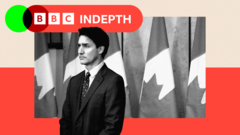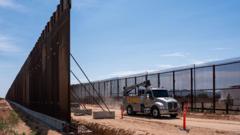The recent immigration debate in Canada has brought to the forefront critical issues concerning housing shortages and escalated living costs, culminating in Justin Trudeau's resignation as Prime Minister. With an increasing number of Canadians expressing concerns over immigration levels, the sentiment marks a notable shift in a country previously known for its welcoming stance towards newcomers. Recent data shows that the percentage of citizens questioning the volume of immigrants surged from 27% in 2022 to 58% in 2024. The housing market has worsened, evidenced by exorbitantly priced rentals transforming uninhabitable spaces into living quarters. Trudeau’s resignation on January 6 was seen as a response to mounting dissatisfaction, with his approval rating plummeting from 65% at the outset of his premiership to a mere 22%. Political changes loom as the Conservative Party may gain traction, advocating for a recalibration of immigration levels in conjunction with housing availability. Additionally, the potential influence of Donald Trump's presidency in the U.S. raises concerns of intensified debates and divisive sentiments spilling over the border. As debates surge, the future remains uncertain but underscores the complex interplay between immigration policy and public sentiment in Canada.
Immigration Crisis in Canada: A Tipping Point for Trudeau’s Leadership

Immigration Crisis in Canada: A Tipping Point for Trudeau’s Leadership
Amidst rising immigration concerns and housing crises, Justin Trudeau's leadership faces significant challenges in Canada as public opinion shifts.
The rising tide against immigration in Canada correlates with rising rents and housing shortages, culminating in Justin Trudeau's surprise resignation amid dire public dissatisfaction. While concerns over immigration persist, the trajectory of Canadian sentiment remains tumultuous as elections approach.


















